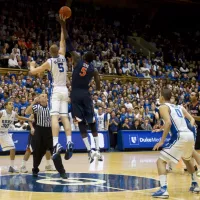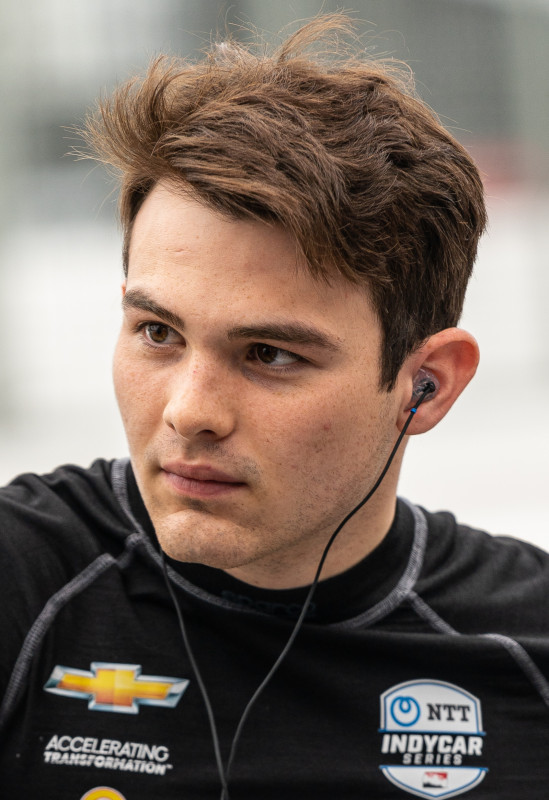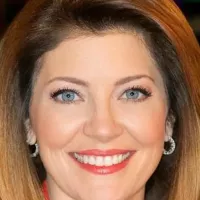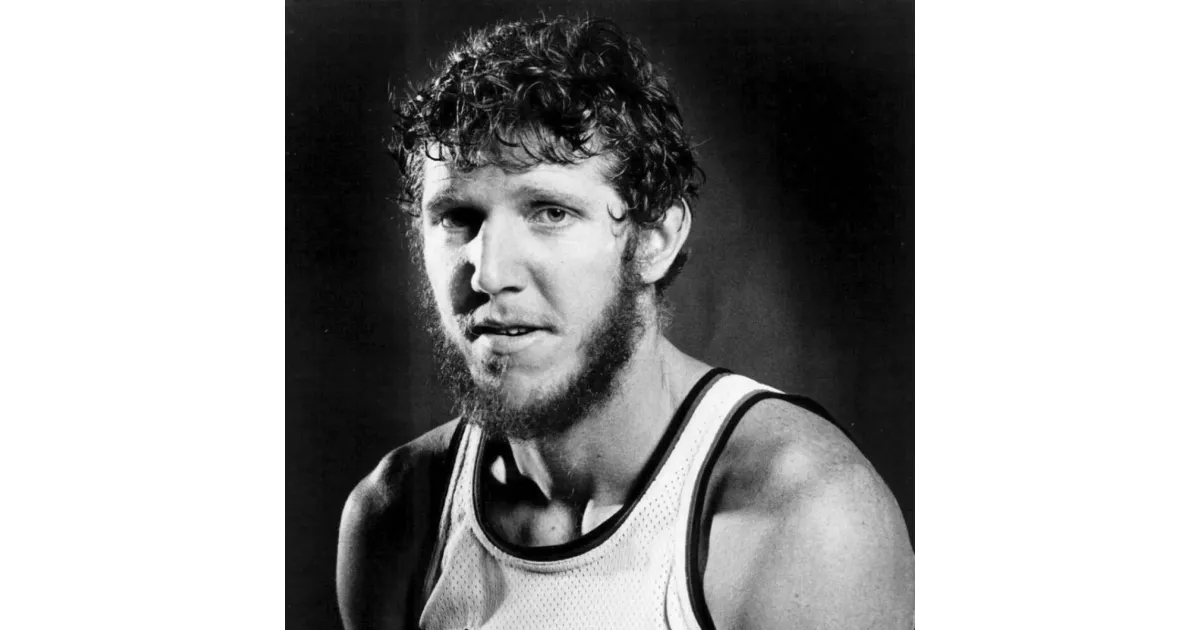Bill Walton, born William Theodore Walton III, is a celebrated figure in American basketball. After a successful college career at UCLA, he went on to play in the NBA for the Portland Trail Blazers, San Diego / Los Angeles Clippers, and Boston Celtics. His achievements in the sport earned him inductions into both the Naismith Memorial Basketball Hall of Fame and the National Collegiate Basketball Hall of Fame. He later transitioned into a career as a television sportscaster.
November 5, 1952: Birth of Bill Walton
On November 5, 1952, William Theodore Walton III, widely known as Bill Walton, was born. He would go on to have a celebrated career as a professional basketball player and television sportscaster.
1967: Bill Walton Starts Attending Grateful Dead Concerts
Bill Walton's passion for the Grateful Dead began in 1967 during his high school years, marking the start of a lifelong connection with the band and their music.
1967: High School Pick-Up Games with the San Diego Rockets
During his high school years in 1967, Bill Walton had the unique opportunity to play pick-up games with players from the NBA expansion team, the San Diego Rockets, showcasing his early talent and passion for the game.
1968: Scouting by UCLA Coach Denny Crum
Denny Crum, an assistant coach at UCLA, was sent to scout Bill Walton in 1968. Impressed by his skills, Crum recognized Walton's potential as an exceptional high school player.
1968: High School Basketball Success
In 1968, during his time at Helix High School, Bill Walton led his team to an impressive 29-2 record, hinting at the remarkable basketball career that lay ahead of him.
1969: CIF Championship and Continued Success
Bill Walton and his Helix High School team achieved CIF Championship victories in both 1969 and 1970. Notably, in 1969, they maintained an undefeated record, showcasing their dominance on the court.
1969: Record-Breaking Season
Bill Walton's senior year in 1969 was marked by record-breaking achievements, including an impressive field goal percentage and a remarkable number of rebounds, solidifying his place in high school basketball history.
1970: Walton's Negative Experience with Coaching Staff
Bill Walton's decision to not join the 1972 U.S. Olympic basketball team stemmed from a negative experience he had with the team's coaching staff during the 1970 World Championships. He described the coaching style as negative and overly critical.
1970: National Recognition in Sports Illustrated
In 1970, Bill Walton received his first taste of national recognition when he was featured in the "Faces in the Crowd" section of Sports Illustrated, highlighting his rising profile as a talented young athlete.
1970: CIF Championship and Graduation
In 1970, Bill Walton's exceptional high school basketball journey culminated in another CIF Championship victory. He graduated at an impressive height, further solidifying his presence on the court.
1970: Undefeated Freshman Team at UCLA
In 1970, Bill Walton, along with Greg Lee and Keith Wilkes, contributed to the UCLA freshman team's undefeated season, demonstrating their early potential and setting the stage for future success.
1970: Walton Represents U.S. at FIBA World Championship
In the summer of 1970, a 17-year-old Bill Walton, fresh out of high school, was selected to represent the United States national basketball team at the FIBA World Championship.
1971: Joining UCLA under Coach John Wooden
Bill Walton's college basketball career began in 1971 when he joined UCLA under the guidance of legendary coach John Wooden, marking the start of a successful and impactful period.
1971: First-Team All-American Selection and Impressive Averages
Bill Walton's outstanding performance in the 1971-72 season earned him a spot on the first-team All-American selection. His impressive averages of 21.1 points and 15.5 rebounds solidified his status as a top player.
1971: UCLA Wins Fifth Consecutive NCAA Title
The 1971 NCAA Championship Game saw UCLA, led by seniors Sidney Wicks, Curtis Rowe, and Steve Patterson, defeat Villanova, securing their fifth consecutive NCAA title and continuing their reign as a basketball powerhouse.
1971: Dominating Performance in the 1971-72 Season
The 1971-72 UCLA basketball team, with Bill Walton among its ranks, delivered a dominant performance, achieving a perfect 30-0 record and outscoring their opponents by an average of over 30 points per game.
1972: NCAA Championships and National College Player of the Year
Bill Walton led UCLA to an NCAA championship in 1972, marking the beginning of three consecutive national college player of the year awards for him.
1972: Bill Walton Wins Top College Basketball Player Honors
Bill Walton was recognized as the nation's top college basketball player in 1972, receiving both the USBWA College Player of the Year and Naismith College Player of the Year awards.
1972: Walton Declines Olympic Invitation
Despite being selected for the 1972 U.S. Olympic basketball team, Bill Walton made the decision to not participate. While some speculated it was politically motivated, he later clarified that it stemmed from a negative experience with the team's coaching style at the 1970 World Championships.
1972: Bill Walton's Impressive 1972-73 Season
During the 1972-73 season, Bill Walton showcased exceptional skills, averaging 20.4 points and 16.9 rebounds per game. His performance earned him a consensus All-American title alongside other notable players.
1972: U.S. Team's Controversial Loss in Olympic Final
In a highly controversial finish, the United States men's basketball team suffered a narrow defeat to the Soviet Union in the 1972 Olympic final. The game, shrouded in controversy over the final seconds, fueled discussions about the U.S. team's composition and the absence of players like Bill Walton.
1972: NCAA Final Four and Championship Victory
In the 1972 NCAA Final Four, Bill Walton showcased his skills with impressive performances in both the semifinal and championship games, leading UCLA to victory and earning the tournament's Most Outstanding Player award.
1972: NCAA Tournament Journey Begins
The 1972 NCAA tournament marked the beginning of another successful journey for UCLA. They faced tough competition, including a victory against coach Jerry Tarkanian's Long Beach State team.
1972: Another Undefeated Season and Pac-8 Dominance
UCLA continued their dominance in the 1972-73 season, achieving another undefeated record and showcasing their superiority in the Pac-8 conference.
1973: Bruce Walton Joins Dallas Cowboys
Bill Walton's brother, Bruce Walton, started his NFL career with the Dallas Cowboys in 1973.
1973: Second NCAA Championship Win
In 1973, Bill Walton and the UCLA Bruins achieved their second consecutive NCAA championship victory, solidifying their dominance in college basketball.
1973: Bill Walton Receives the James E. Sullivan Award
In 1973, Bill Walton's exceptional athleticism earned him the prestigious James E. Sullivan Award, recognizing him as the top amateur athlete in the United States.
1973: Dallas Chaparrals Attempt to Draft Bill Walton
In an attempt to entice Bill Walton away from UCLA, the ABA's Dallas Chaparrals drafted him in the 1973 ABA draft. However, Walton remained committed to his college career.
1973: Bill Walton's Dominant NCAA Championship Performance
In the 1973 NCAA title game against Memphis State, Bill Walton delivered an outstanding performance, scoring 44 points on 21 of 22 shooting. This remarkable feat contributed to UCLA's seventh consecutive title win.
1973: Victory over Indiana in the National Semifinal
The 1973 NCAA Final Four saw UCLA face Indiana, coached by the renowned Bob Knight. The Bruins emerged victorious, with Bill Walton showcasing his versatility on the court.
1973: Victories on the Road to the Final Four
UCLA's journey in the 1973 NCAA tournament included impressive victories against Arizona State and San Francisco, securing their place in the Final Four once again.
January 19, 1974: UCLA's Winning Streak Ends Against Notre Dame
On January 19, 1974, UCLA's impressive 88-game winning streak came to an end with a 71-70 loss to Notre Dame. Despite leading by 17 points at halftime, UCLA couldn't hold on, with Walton calling his performance a "complete failure" despite playing with a back injury.
1974: Bill Walton Earns Academic All-American Honors
Alongside his athletic achievements, Bill Walton also excelled academically, earning Academic All-American honors in 1972, 1973, and 1974. This recognition highlighted his well-rounded abilities.
1974: Portland Trail Blazers Draft Bill Walton
As the number one overall pick in the 1974 NBA draft, Bill Walton was drafted by the Portland Trail Blazers, marking the beginning of his professional basketball career.
1974: UCLA's Seven-Year Championship Streak Ends
In a heartbreaking turn of events at the 1974 Final Four, UCLA's pursuit of an eighth consecutive national title was cut short by North Carolina State. Despite Walton's impressive performance with 29 points and 18 rebounds, UCLA lost 80-77. The game is regarded as one of the greatest NCAA tournament games.
1974: Bill Walton's Solid Rookie Season
In his rookie season with the Portland Trail Blazers, Bill Walton made an immediate impact, averaging a double-double with 12.8 points and 12.6 rebounds per game.
1974: UCLA's Journey to the 1974 Final Four
In the 1974 NCAA tournament, UCLA, led by Bill Walton, secured victories against Dayton and San Francisco, securing their place in the Final Four. Walton's performance was instrumental in these wins.
1974: San Diego Conquistadors Pursue Bill Walton
The ABA's San Diego Conquistadors made efforts to sign Bill Walton after drafting him in the 1974 ABA draft. They even signed Wilt Chamberlain as player-coach to entice him. However, Walton remained steadfast in his decision.
1974: First Overall Pick in the NBA Draft
The year 1974 marked a significant milestone in Bill Walton's career as he was selected as the first overall pick in the NBA draft, showcasing his exceptional talent and potential.
1974: Two Consecutive Undefeated Seasons and 88-Game Winning Streak
Under Bill Walton's leadership, UCLA achieved an unprecedented feat, securing two consecutive undefeated seasons and a record-breaking 88-game winning streak, solidifying their place in college basketball history.
1975: Bill Walton's Performance in the 1975-76 Season
Bill Walton continued to be a significant contributor to the Portland Trail Blazers during the 1975-76 season, averaging 16.1 points and 13.4 rebounds per game.
1975: Bruce Walton's Time with Dallas Cowboys Ends
Bruce Walton concluded his time with the Dallas Cowboys in 1975.
1976: Trail Blazers Welcome New Coach and Player
The 1976-77 season saw the arrival of new head coach Jack Ramsay and ABA draftee Maurice Lucas to the Portland Trail Blazers, setting the stage for a transformative season.
1977: Bill Walton's Ankle Injury and Lawsuit Against Trail Blazers Doctor
Bill Walton experienced a foot injury during the 1977-78 season, which he claimed was misdiagnosed and mistreated by the Portland Trail Blazers' team doctor, leading to a lawsuit alleging negligence.
1977: Bill Walton Suffers a Foot Injury
Despite a promising start to the 1977-78 season, Bill Walton's season was cut short by a foot injury. This marked a setback for the talented player.
1977: Leading the Portland Trail Blazers to Victory
In 1977, Bill Walton played a pivotal role in leading the Portland Trail Blazers to their first NBA championship title, a testament to his leadership and skills on the court.
1977: Portland Trail Blazers' Playoff Run
In the 1977 NBA Playoffs, the Portland Trail Blazers, led by Bill Walton, made a remarkable run, defeating the Chicago Bulls and Denver Nuggets. Walton's consistent performance was crucial to their success.
1977: Portland Trail Blazers Win the NBA Championship
The Portland Trail Blazers, after losing the first two games against the Philadelphia 76ers, rallied to win four straight, clinching the NBA championship. Bill Walton's outstanding performance earned him the Finals MVP award.
1978: Bill Walton's Holdout and Career Statistics
Bill Walton's NBA career was significantly impacted by injuries and a year-long holdout in 1978-1979, limiting him to playing only 44% of the regular season games over his 13 years in the league.
1978: Bill Walton Travels with the Grateful Dead to Egypt
Bill Walton's dedication to the Grateful Dead extended to traveling with the band to Egypt for their performance in 1978, even joining them on drums, highlighting his deep connection with their music.
1978: NBA Most Valuable Player Award
Bill Walton's exceptional performance earned him the prestigious NBA Most Valuable Player (MVP) award in 1978, solidifying his status as one of the league's most dominant players.
1978: Bill Walton Receives MVP Honors
Despite his injury-shortened season, Bill Walton's exceptional performance in the 1977-78 season earned him the NBA Most Valuable Player award, a testament to his impact on the court.
1978: Injury Ends Walton's Season with the Trail Blazers
In 1978, despite finishing the regular season with an impressive 58-24 record, Bill Walton's playoff run with the Portland Trail Blazers was cut short due to an ankle injury sustained in the second game of the first-round series against the Seattle SuperSonics. This marked the end of Walton's time with the Trail Blazers.
1978: Foot Injuries and Career Interruptions
Starting in 1978, Bill Walton's career faced significant challenges due to multiple foot injuries, leading to numerous surgeries and forcing him to sit out entire seasons.
May 13, 1979: Walton Signs with the San Diego Clippers
On May 13, 1979, Bill Walton joined the San Diego Clippers as a veteran free agent after his time with the Portland Trail Blazers ended.
1979: Bill Walton Marries Susie
Bill Walton married Susie in 1979.
1979: Bill Walton's Holdout and Career Statistics
Bill Walton's NBA career was significantly impacted by injuries and a year-long holdout in 1978-1979, limiting him to playing only 44% of the regular season games over his 13 years in the league.
1979: Walton's Injury Woes Continue with Clippers
Bill Walton's time with the San Diego Clippers was significantly hampered by injuries. Despite joining the team in 1979, he played only 14 games that season due to a re-fractured navicular bone.
1979: Walton's Limited Appearances with the Clippers
From 1979 to 1982, Bill Walton played a mere 14 games for the San Diego Clippers as he grappled with persistent foot problems.
1979: Walton Demands Trade, Sits Out Season
Frustrated with the Portland Trail Blazers' handling of player injuries, Bill Walton requested a trade in 1979. When his request wasn't met, he sat out the entire season in protest.
1980: Trail Blazers Receive Compensation for Walton Signing
As part of the agreement for Bill Walton signing with the San Diego Clippers, the Portland Trail Blazers received compensation in the form of players Kevin Kunnert and Kermit Washington, and a 1980 first-round draft pick, which they used to select Mike Gminski.
1980: Walton Misses Entire Season Due to Injury
Bill Walton's foot injury continued to plague him, forcing him to miss the entire 1980-81 NBA season.
1981: Walton Undergoes Foot Surgery, Misses Another Season
Bill Walton underwent surgery on his injured foot in 1981, leading him to miss the entire 1981-82 NBA season as he continued to battle through injuries.
1982: Walton Returns to Action with Limited Playing Time
Following a period of extensive rehabilitation, Bill Walton returned to the court in the 1982-83 season. However, he played under doctor's orders, limiting him to approximately one game per week.
1983: Walton Increases Playing Time, Demonstrating Recovery
Building on his progress, Bill Walton continued to increase his playing time in the 1983-84 NBA season, demonstrating his recovery from persistent foot injuries.
1984: Walton Considers Celtics and Lakers
Following the 1984-85 season, Bill Walton, eager to join a championship-caliber team, explored options with two of the NBA's powerhouses: the Boston Celtics and the Los Angeles Lakers.
1984: Appearance in "Ghostbusters"
Bill Walton made a cameo appearance in the movie "Ghostbusters" in 1984.
1984: Bill Walton's Surprise Appearance in "Ghostbusters" Revealed
During a basketball game broadcast in January 2019, Bill Walton casually mentioned his appearance in the film "Ghostbusters," a claim met with skepticism until research confirmed his unexpected cameo.
1984: Walton Achieves Career-High in Games Played
In the 1984-85 NBA season, Bill Walton achieved a career-high by playing in 67 games, highlighting his successful comeback from years of being sidelined by injuries. By this time, the Clippers had relocated from San Diego to Los Angeles.
September 6, 1985: Walton Traded to the Boston Celtics
On September 6, 1985, the Los Angeles Clippers traded Bill Walton to the Boston Celtics. In exchange for Walton, the Clippers received Cedric Maxwell and a 1986 first-round draft pick, which would later be used to select Arvydas Sabonis.
1985: Walton Joins the Celtics
Bill Walton joined the Boston Celtics for the 1985-86 season, playing under coach K.C. Jones.
1985: Walton Seeks Move to a Contending Team
By 1985, after years of struggling with the Clippers, a 32-year-old Bill Walton expressed a desire to play for a more competitive team. The Clippers had yet to achieve a winning record during his time with the franchise.
1985: NBA Sixth Man of the Year Award
In 1985, Bill Walton's resilience and contributions to the Boston Celtics earned him the NBA Sixth Man of the Year Award, highlighting his adaptability and value to the team.
1985: Walton Receives Warm Welcome in Boston Debut
In his first appearance as a Boston Celtic at the Boston Garden in 1985, Bill Walton was greeted with a heartwarming one-minute standing ovation from the home crowd during his first exhibition game.
1985: Larry Bird on Walton's Impact
Larry Bird acknowledged Bill Walton's significant contributions to the 1985-86 Celtics, emphasizing how the acquisition of Walton and Jerry Sichting bolstered the team's already strong lineup. Bird considered that team to be the best he ever played on.
1986: Walton Returns to Playoffs with Celtics
After a long absence from the playoffs, Bill Walton returned to the postseason in 1986 as a key member of the Boston Celtics. This marked his first playoff appearance in almost a decade.
1986: Walton Battles Injuries During Regular Season
Bill Walton's injury struggles resurfaced during the 1986-87 regular season, limiting his playing time.
1986: Walton Wins NBA Championship with Celtics
In 1986, Bill Walton achieved the pinnacle of his NBA career by winning an NBA championship with the Boston Celtics. The Celtics defeated the Houston Rockets, led by Hakeem Olajuwon and Ralph Sampson, in a hard-fought six-game series.
1986: Walton Earns Sixth Man of the Year Award
In 1986, Bill Walton, playing a key role off the bench for the Boston Celtics, was honored with the NBA Sixth Man of the Year Award. This recognition further solidified his impact on the team's success.
1986: Celtics Use Acquired Draft Pick to Select Sabonis
The Boston Celtics used the 1986 first-round draft pick acquired from the Los Angeles Clippers in the Bill Walton trade to select Arvydas Sabonis.
1987: Walton Sidelined with Injuries
Bill Walton spent the entire 1987-88 NBA season on the Boston Celtics' injured list due to ongoing health issues.
1987: Walton Returns for Playoffs After Injury
Despite missing a significant portion of the 1986-87 regular season due to injuries, Bill Walton returned to action in time for the playoffs.
1989: Bill Walton and Susie Divorce
Bill Walton and his first wife, Susie, divorced in 1989.
February 1990: Walton Retires from Basketball
After a long and successful career, marked by both triumphs and setbacks, Bill Walton officially retired from professional basketball in February 1990.
1990: Bill Walton Embarks on Broadcasting Career
Bill Walton transitioned into broadcasting after retiring as a player, starting with CBS and the Los Angeles Clippers in 1990.
1991: Bill Walton Marries Lori Matsuoka
Bill Walton married Lori Matsuoka in 1991.
1991: Bill Walton's Broadcasting Career Expands
Bill Walton's broadcasting career expanded in 1991 to include work with NCAA on CBS, adding to his existing roles with CBS and the Los Angeles Clippers.
1991: Emmy Award for Sportscasting
Bill Walton's transition to a career in sportscasting proved successful as he earned an Emmy Award in 1991, showcasing his talent and passion for basketball beyond the court.
1993: Induction into the Naismith Memorial Basketball Hall of Fame
Bill Walton received one of basketball's highest honors in 1993 when he was inducted into the Naismith Memorial Basketball Hall of Fame, cementing his place in basketball history.
1993: Gene Bartow Reflects on Bill Walton's 1973 Championship Game Performance
In 1993, Gene Bartow, then coach of Memphis State, acknowledged the brilliance of Bill Walton's performance in the 1973 NCAA championship game. He admitted their struggle to contain Walton, who led UCLA to victory.
2001: Bill Walton Inducted into The Grateful Dead Hall of Honor
Bill Walton's status as an avid fan of the Grateful Dead was solidified in 2001 when he received the honor of being inducted into The Grateful Dead Hall of Honor.
2001: Bill Walton Receives Emmy Award for Sports Broadcasting
In recognition of his exceptional work in sports broadcasting, Bill Walton was honored with an Emmy Award for "Best Live Sports Television Broadcast" in 2001.
2002: Bill Walton Joins ABC/ESPN as Broadcaster
Bill Walton continued his broadcasting career with ABC/ESPN in 2002 after previously working with CBS, NCAA on CBS, NBC, and the Los Angeles Clippers.
2003: Bill Walton's Life Story Featured in ESPN Documentary
In 2003, ESPN aired "Bill Walton's Long Strange Trip," a television series chronicling Walton's life and career, highlighting both his triumphs and challenges.
2003: Nate Walton on Ballot for California Recall Election
Nate Walton, Bill Walton's son, participated in the 2003 California Recall election, showcasing his involvement in the political sphere.
2004: Voice Acting in Video Games
Bill Walton provided his voice for the video games "NBA 2K5" and "NBA ShootOut 2004".
2004: Walton Recalls Negative Coaching Experience
In a 2004 interview with ESPN, Bill Walton elaborated on his reasons for declining the invitation to join the 1972 U.S. Olympic basketball team, citing a negative coaching environment during the 1970 World Championships as a contributing factor.
2006: Induction into the National Collegiate Basketball Hall of Fame
In 2006, Bill Walton's contributions to college basketball were further recognized with his induction into the National Collegiate Basketball Hall of Fame, honoring his exceptional collegiate career.
November 2009: Bill Walton Steps Away from Broadcasting Due to Back Issues
After a successful run as a basketball commentator, Bill Walton announced his departure from ESPN in November 2009, citing chronic back problems stemming from a college injury.
2009: Bill Walton Undergoes Spinal-Fusion Surgery
In 2009, Bill Walton underwent a significant eight-hour spinal-fusion surgery, highlighting the extent of his injuries and his challenging recovery process.
2009: Luke Walton Wins First NBA Championship with the Lakers
Luke Walton, Bill Walton's son, celebrated his first NBA championship victory with the Los Angeles Lakers in 2009.
2009: Bill Walton Returns to Portland with Apologies
Upon returning to Portland in 2009, Bill Walton publicly expressed regret for his past actions and the circumstances of his departure from the Trail Blazers, wishing he could change things but acknowledging his limitations.
June 8, 2010: Bill Walton Opens Up About Contemplating Suicide
In a candid interview on "The Dan Patrick Show" on June 8, 2010, Bill Walton shared his struggles with chronic pain stemming from his basketball injuries, revealing that he had contemplated suicide.
2010: Bill Walton Returns to Broadcasting with Sacramento Kings
Following surgery and recovery from back issues, Bill Walton rejoined the broadcasting world in 2010 as a part-time commentator for the Sacramento Kings.
2010: Jack Ramsay Praises Bill Walton's Abilities
In 2010, Coach Jack Ramsay lauded Bill Walton as the best Portland Trail Blazer, emphasizing his multifaceted skills, love for the game, and the frustration of his injuries cutting his career short.
2010: Luke Walton Wins Second NBA Championship with the Lakers
Luke Walton secured his second consecutive NBA championship title with the Los Angeles Lakers in 2010.
2011: Appearance in Capital One Visigoth SportsNet Commercials
Bill Walton appeared as Sven the Wise in the Capital One Visigoth SportsNet commercials in 2011.
2011: Bill Walton Continues with Sacramento Kings Broadcasts
Bill Walton extended his part-time broadcasting role with the Sacramento Kings in 2011, marking his continued presence in the basketball world.
July 2012: Bill Walton Returns to Broadcasting with Pac-12 Network
Following back surgery and a brief hiatus, Bill Walton made a return to full-time broadcasting in July 2012 as a game analyst for Pac-12 conference basketball, partnering with ESPN and the Pac-12 Network.
2013: Bill Walton Writes Liner Notes for Grateful Dead Album
Bill Walton combined his passion for music and writing by penning the liner notes for the Grateful Dead's live album, "Dave's Picks Volume 5," in 2013, further showcasing his connection to the band.
2015: Foreword for "Unconditional Honor: Wounded Warriors and their Dogs"
In 2015, Bill Walton, who had a service dog, wrote the foreword to the book "Unconditional Honor: Wounded Warriors and their Dogs" by author Cathy Scott.
2015: Bill Walton Visits Ken Kesey Collection
While visiting the University of Oregon in 2015, Bill Walton took the opportunity to explore the Ken Kesey Collection, highlighting his admiration for the renowned writer.
March 2016: Publication of "Back from the Dead: Searching for the Sound, Shining the Light and Throwing It Down"
In March 2016, Bill Walton released his memoir, "Back from the Dead: Searching for the Sound, Shining the Light and Throwing It Down," published by Simon & Schuster.
April 2016: "Back from the Dead" on The New York Times Bestseller List
Bill Walton's memoir, "Back from the Dead: Searching for the Sound, Shining the Light and Throwing It Down," appeared on The New York Times bestseller list for two weeks in April 2016.
2016: Luke Walton Becomes Head Coach of the Los Angeles Lakers
Following in his father's footsteps, Luke Walton embarked on his NBA coaching career, taking the helm as head coach of the Los Angeles Lakers in 2016.
2018: Bill Walton Honored with CoSIDA Dick Enberg Award
Bill Walton's contributions to sports broadcasting were recognized once again in 2018 when he received the prestigious CoSIDA Dick Enberg Award.
January 2019: Bill Walton's Surprise Appearance in "Ghostbusters" Revealed
During a basketball game broadcast in January 2019, Bill Walton casually mentioned his appearance in the film "Ghostbusters," a claim met with skepticism until research confirmed his unexpected cameo.
April 2019: Luke Walton Named Head Coach of Sacramento Kings
In April 2019, Luke Walton, son of Bill Walton, was appointed as the head coach of the Sacramento Kings, further extending the family's legacy in basketball.
2021: Bill Walton Ranked Among Top 75 NBA Players
In celebration of the NBA's 75th anniversary in 2021, The Athletic recognized Bill Walton's impact on the sport by ranking him as the 64th greatest player in NBA history.
2023: Bill Walton Writes Liner Notes for Another Grateful Dead Album
Bill Walton's contributions to the Grateful Dead's musical legacy continued in 2023 when he wrote liner notes for "Dave's Picks Volume 48," solidifying his place in their history.
May 27, 2024: Death of Bill Walton
Bill Walton, a renowned figure in basketball, passed away on May 27, 2024. He left behind a remarkable legacy as a player and sportscaster.
Mentioned in this timeline

Basketball is a team sport played on a rectangular court...
CBS Broadcasting Inc CBS is a prominent American commercial broadcast...
California is a U S state on the Pacific Coast...
The Union of Soviet Socialist Republics USSR existed from to...
Sports Illustrated SI is an American sports magazine launched in...

College basketball in the U S is governed by bodies...
Trending

36 minutes ago Official Pokémon LEGO Sets Launch Worldwide on Pokémon Day 2026!

37 minutes ago Scream 7 Premiere Sees Protests After Melissa Barrera's Firing; Cast Reunites.

37 minutes ago Stock market plunges after PPI inflation data; Dow, S&P 500, Nasdaq decline.
37 minutes ago US advises embassy staff to leave Israel amid Iran strike threats, urging speed.

37 minutes ago IndyCar Season Opens in St. Petersburg: O'Ward and Palou in Focus.

38 minutes ago Norah O'Donnell Back on CBS Mornings, Highlights Women in 'We the Women'
Popular

Jesse Jackson is an American civil rights activist politician and...

Barack Obama the th U S President - was the...

Susan Rice is an American diplomat and public official prominent...

XXXTentacion born Jahseh Dwayne Ricardo Onfroy was a controversial yet...

Michael Joseph Jackson the King of Pop was a highly...

Kashyap Pramod Patel is an American lawyer who became the...
